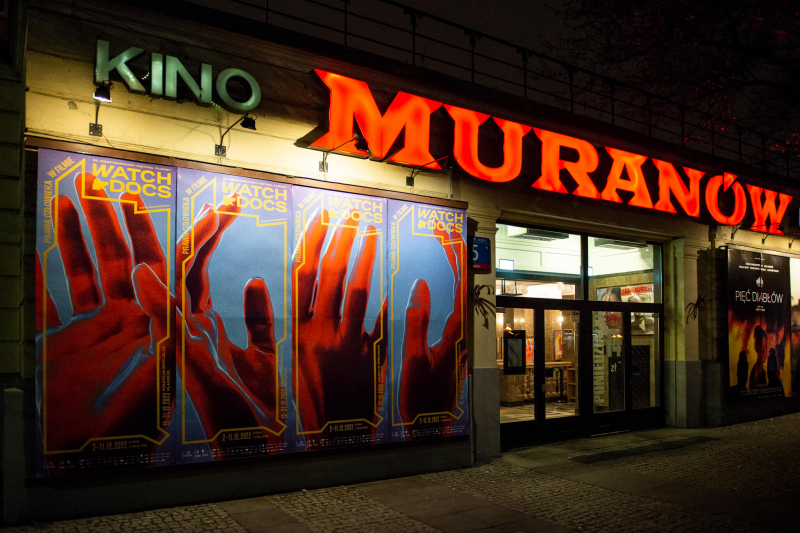Tuesday Dec 6 on WATCH DOCS! | WATCH DOCS
Jump to contentTuesday Dec 6 on WATCH DOCS!
A famous film about the murder of Slovak journalist Ján Kuciak and a discussion around the future of investigative journalism, plus a lecture around the impact of documentaries on the world and a meeting around the cooperation of prisoners with abandoned dogs. Join us on Tuesday!
- 18:00 Can you kill the investigative story? Discussion following the screening of “The Killing of a Journalist”
The assassination of Slovak journalist Ján Kuciak shocked Europe. Although a powerful political-mafia was behind the ensuing cover-up, the investigative journalists were not intimidated and finished the investigation that led to their colleague's murder.
Collaborating independent journalistic organizations continue to reveal more scandals and abuses of power across Europe and the world. They are paying a heavy price for this – from Pegasus surveillance, through lawsuits and organized hate online -- to threats and violent incidents. Can the unwavering journalists stand together against big business with political connections?
The risks associated with practicing investigative journalism in Central Europe will be discussed by:
- Lukáš Diko (Slovakia), editor-in-chief of the Investigative Center of Ján Kuciak (ICJK)
- András Pethő (Hungary), co-founder and editor-in-chief of the Direkt36 Investigative Journalism Center
- Anna Gielewska (Poland), co-founder and editor-in-chief of VSquare - a Central European investigative journalism website
The meeting will be hosted by Beata Biel, head of the Reporters Foundation Council.
- 18:00 „Impact of Documentary Film: Between Social Engagement and Marketing” - Lecture by Maciej Nowicki, President of the Board, Helsinki Foundation for Human Rights
- 21:15 „All of Our Heartbeats Are Connected Through Exploding Stars” The 2011 tsunami, which claimed an unidentified number of victims in Japan, also caused massive environmental pollution. It involved more than the Fukushima nuclear meltdown and attendant radioactive spills; the receding wave seized thousands of bodies and tons of waste into the ocean. How did this unexpected "gift" affect the lives of various deep-sea creatures? In her fascinating, largely underwater film, Jennifer Rainsford attempts to trace the route that plastic trash traveled over the years to reach the other side of the Pacific. At the same time, she poses the question of how man and nature can help each other deal with the deepest traumas.
KINOTEKA:
- 18:00 „The Pack” - As part of a special rehabilitation program, a group of repeat offenders with lengthy sentences train dogs from a nearby animal shelter. If they succeed, they will increase the chances of their charges being adopted and living a normal life. If not, the dogs will be put to sleep. Will they be able to save the animals? And how will this whole process, which requires emotional engagement, affect the psyche of people living in a world where emotions are not allowed?
What to do on Wednesday?
18:00 KINOTEKA - Sustainable fashion. Is it possible to dress the world responsibly? Discussion after the screening of the film “Fashion Reimagined”
The price for universal access to cheap and fashionable clothes is paid today by workers in slave factories in South Asia - and by the environment. However, figures of the fashion world are increasingly involved in information campaigns propagating human and animal rights as well as environmental protection.
These declarations are followed by concrete attempts to redefine the principles of local and international fashion. Local brands focusing on ethical production and distribution of apparel are becoming increasingly available.
At the same time, however, the practice of greenwashing is developing, often by large clothing companies. Is it possible to change the whole world of fashion? And how do you distinguish between real and superficial change?
